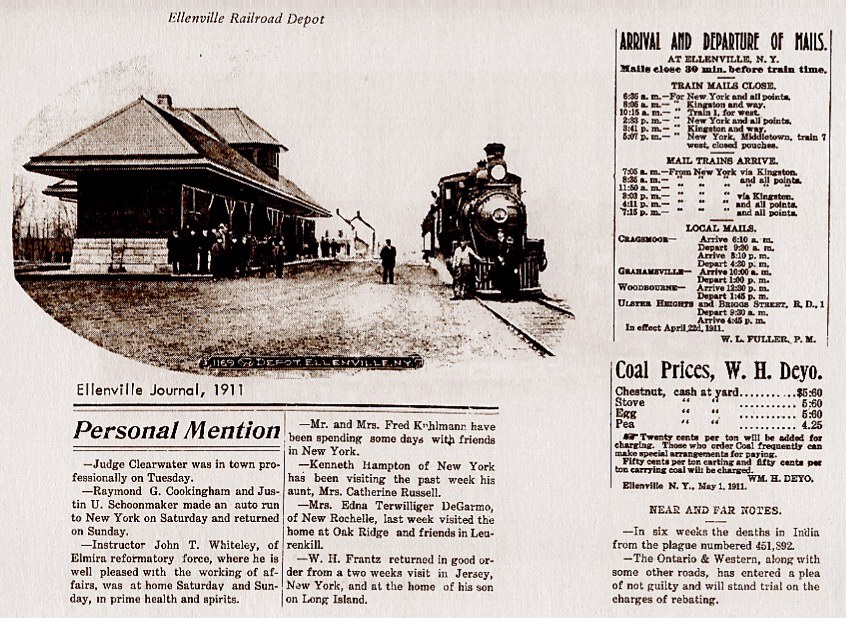Home Page | home
Page 1 | Page 2 | Page 3 | Page 4 | Page 5 | Page 6 | Page 7 | Page 8 | Page 9 | Contact Me and Favorite Links | Birds Eye Larger View | P 7 Larger View | Larger View Ellenville Street Map | Larger view of West Ellenville | Larger view of Ellenville Pictorial Map | Larger view of Ellenville Post Office and Savings Bank | Larger View of Ellenville East | Kuhlmann Beer Sign Larger View
Page 5
Early Industry
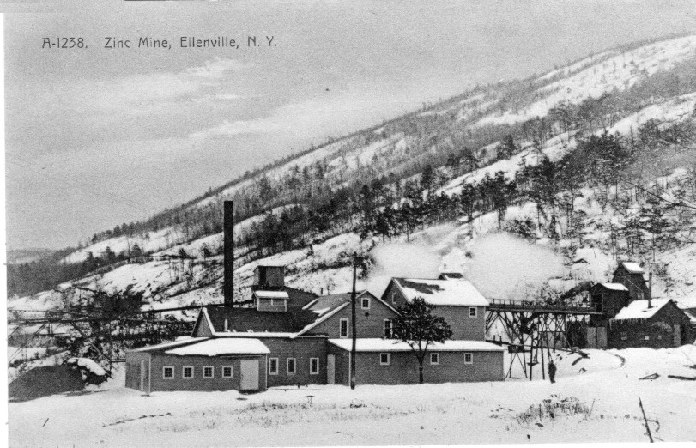
The Old Ellenville Zinc Mine 1800s
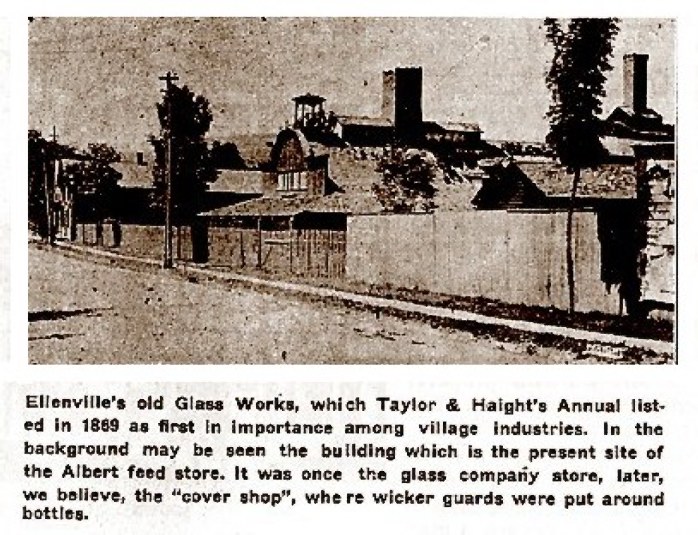
The canal and westward expansion led to various industrial opportunities. It has been said[ that every pioneer wagon heading west carried a Napanoch axe and an Ellenville demijohn. Ellenville pottery and glassworks still remain sought-after collector items; many examples are on display at the Ellenville Public Library's Terwilliger House Museum. Knife manufacturing was a major industry in Ellenville and Napanoch for over 100 years; the Ulster Knife Company set up in the 1870s, eventually merging with Imperial Knife Company and Schrade Cutlery, finally becoming Imperial Schrade until its closing in 2004. Famous for "Uncle Henry" and "Old Timer" knives, the Schrade tradition is now maintained by several former executives and employees in the newly created Canal Street Cutlery,[ specializing in high-end quality collector knives.
Ellenville Sun Ray Water Bottling Works
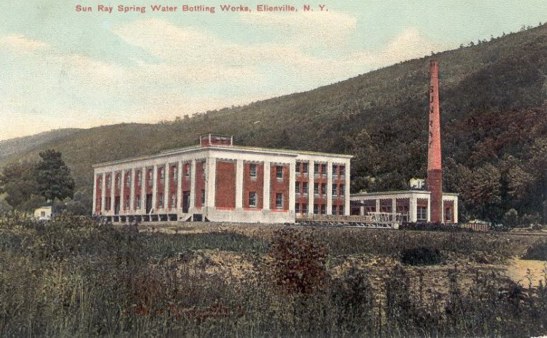
ELLENVILLE, NEW YORK 1939 -1944.
Bottled Spring water from the old Sun Ray Spring and bottling, works in Ellenville, NY before
World War II was advertised as"Healthful, Delicious and Sparkling" For some reason it was
called a "Natural Mineral Spring Water" as the TDS meets no definition of mineral water.
The water was bottled in 12 ounce and "full quart" bottles with paper labels bearing the
image of a nude lady at a waterfall. The operation was shut down by the government when
it was discovered the owner was using bootleg sugar in the Pure Rock accompany-
ing line of sodas.
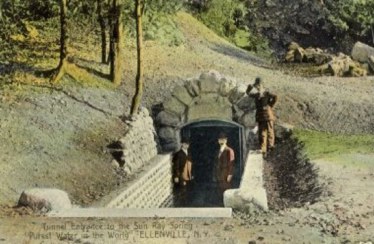
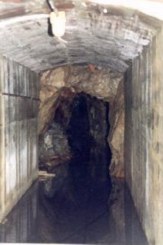
Ellenville Sunray Spring Water Tunnel Inside Tunnel
The Ellenville Knife Works
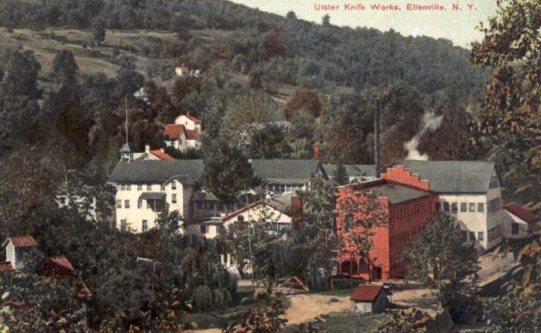
Schrade Knife Works.Year?
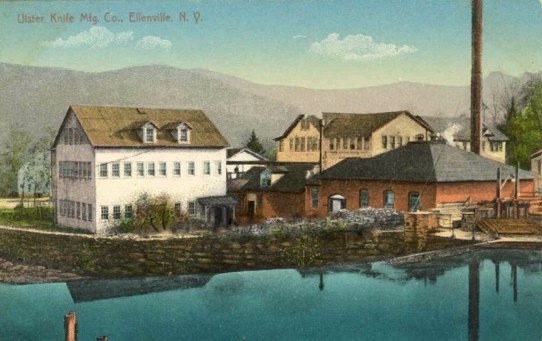
Another view of the Schrade Knife Works. Year?
The old Ellenville Ulster Paint Works
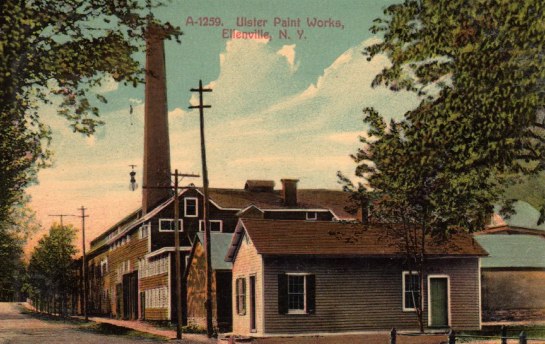
Ellenville Railroad
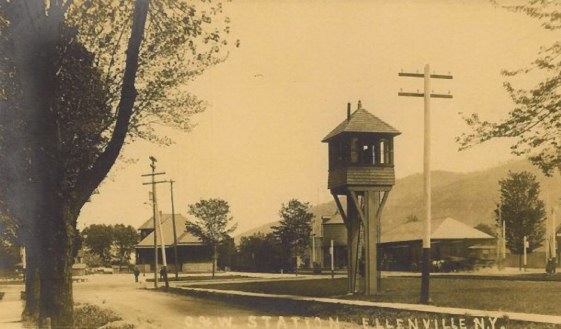
Ellenville Rail Station and Switching Tower. Early 1900s
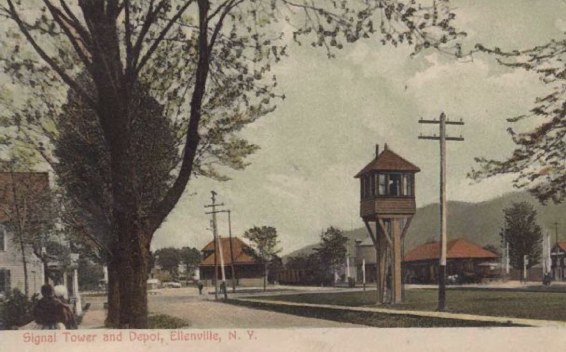
Colorized Post Card of the Ellenville Rail Station and signal tower 1907
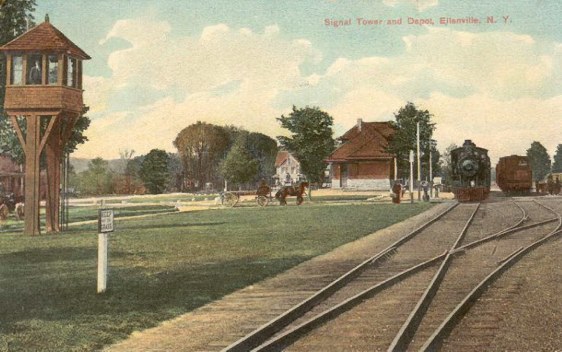
Another View of the Ellenville Train Station Signal Tower and Depot
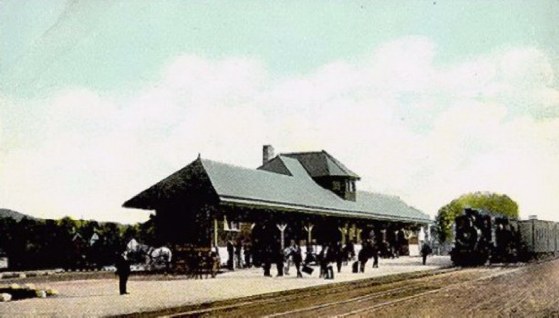
Ontario and Western Railroad Train coming into the Ellenville Station. Early 1900s
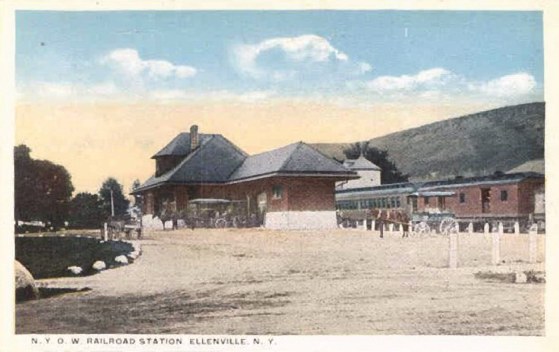
Another view of the busy Ontario and Western Railroad Station at Ellenville.
Early 1900s
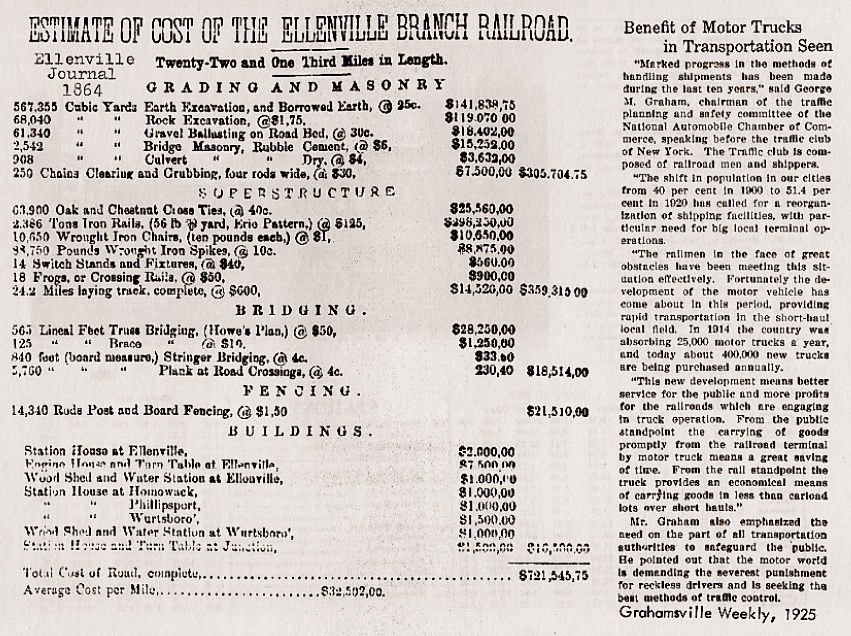
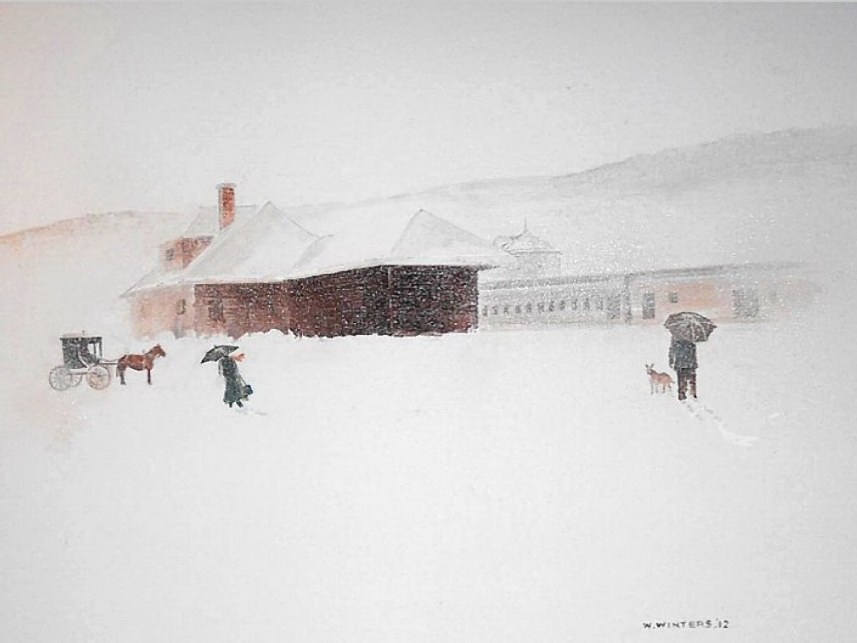
Ellenville RR Station in winter. Painting by Bill Winters
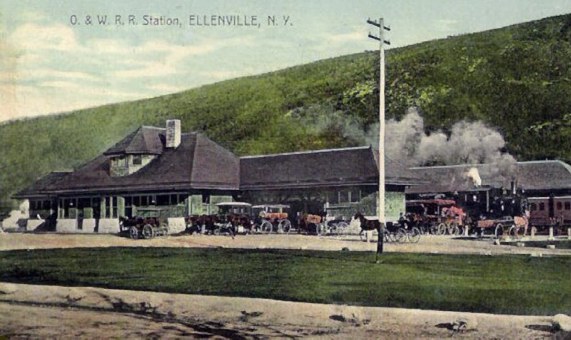
Another old picture of the Ellenville Rail Road Station
1947-1984
In the late 1940s, Jpseph Resnick, a radio officer in the U.S. Merchant Marine during the war, developed a turnable DIY antenna system
just as the TV boom was taking off. He, and his brothers Harry and Louis, created Channel Master, and built one of the region's major manufacturing plants just north of the Ellenville border, along with an aluminum plant to fabricate necessary components. After selling the company to Avnett, production moved to South Carolina. The vacated Channel Master factory was eventually bought by Imperial Schrade, and the aluminum plant by V.A.W. and later Hydro Aluminum, both factories closed in the 2000s (decade), leaving hundreds unemployed, compounding Ellenville's economic doldrums that began with a decline of the tourism and hotel industry in the 1960s, and the development
of regional shopping malls, which directed much shopping traffic away from the village.
Other early Ellenville Industries were The Wood Novelty Co., Rosenstock's Clothing Maufacturing Companies, The Ellenville Handle Works.
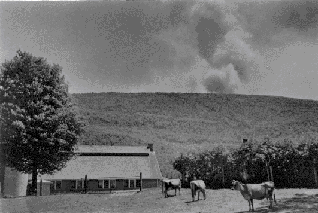
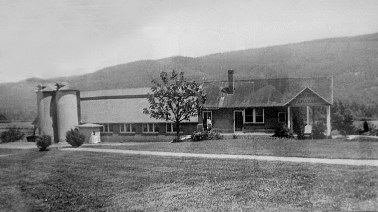
The old Yama Farms Inn Dariry Farm on Route 209 Ellenville, NY across from the Fantinekill Cememtery was
the second Channel Master Factory. The first was on Chapel Street, Ellenville, NY which is now long gone.
The picture on the right shows a small building which was the office. I was the 34th person to be hired back
in 1949 by Jerry Elkin who was the Personnel Manager in that time period.
Channel Master Corp of Ellenville, NY
The New Factory ws built in Ellenville, NY from 1953-i984 then moved to NC
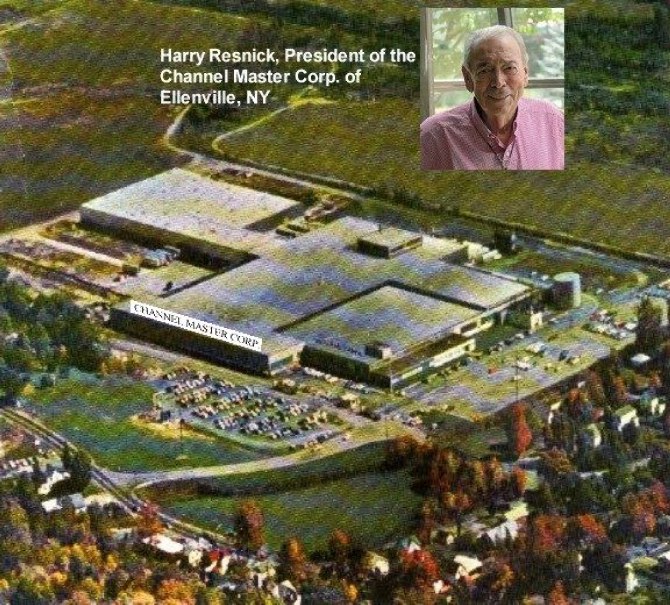
Channel Master Corp of Ellenville, NY
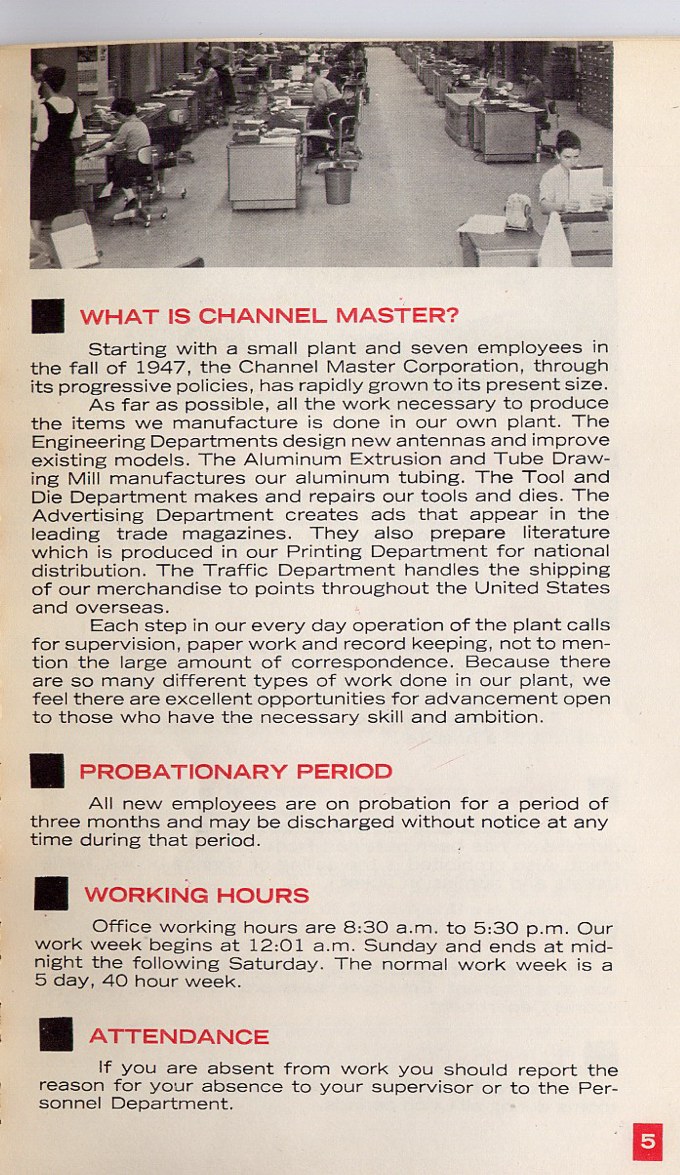
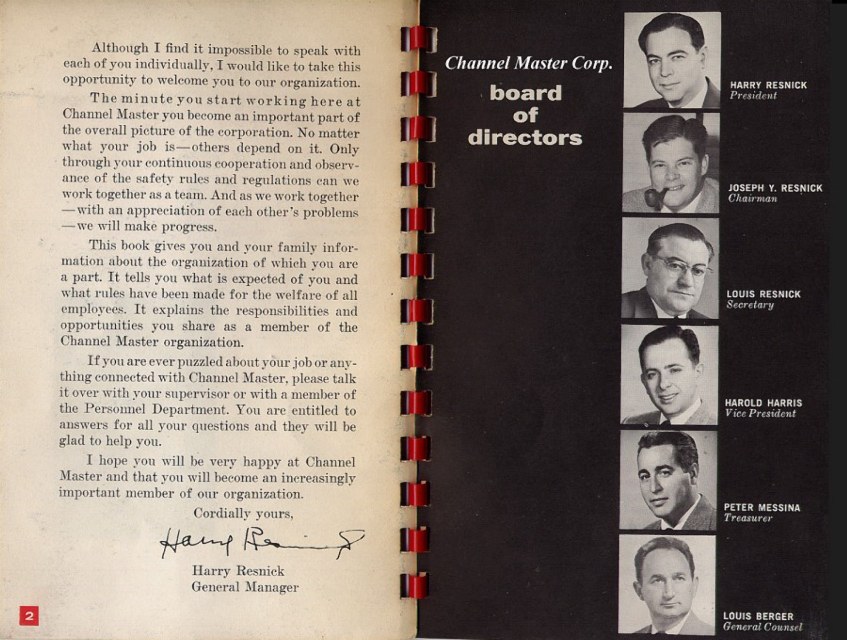
Channel Master was a manufacturer of prefabricated aluminium television antennas. It was founded in Ellenville, New York in 1949 by 23-year-old former Merchant Marine radio operator and DuMont TV antenna installer Joe Resnick with the backing of his brothers Harry and Louis Resnick. Its principal innovation was that its antennas arrived with elements folded, not disassembled, so that during installation the antenna could be quickly unfolded with the elements automatically locking into place. This saved time and effort for rooftop antenna installers, who were often working at awkward heights and in unfavourable weather.
Established with $7000 in capital from cabbage farmer Louis Resnick, who sold his Ellenville farm, the company was manufacturing $12 million annually in prefabricated antennas by 1954 and had expanded its product line in the 1960s to include transistorised signal boosters] along with antenna rotators.
Channel Master moved there business to Smithfield, NC around the year 2000 and closed in 2004
If anyone has the more accurate dates please let me know and email me at: limnerbill@aol.com
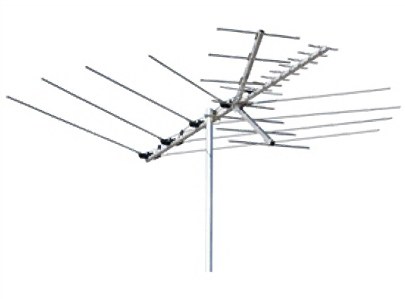
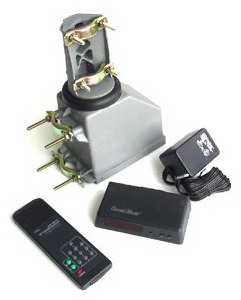
Channel Master TV Antenna and Rotator
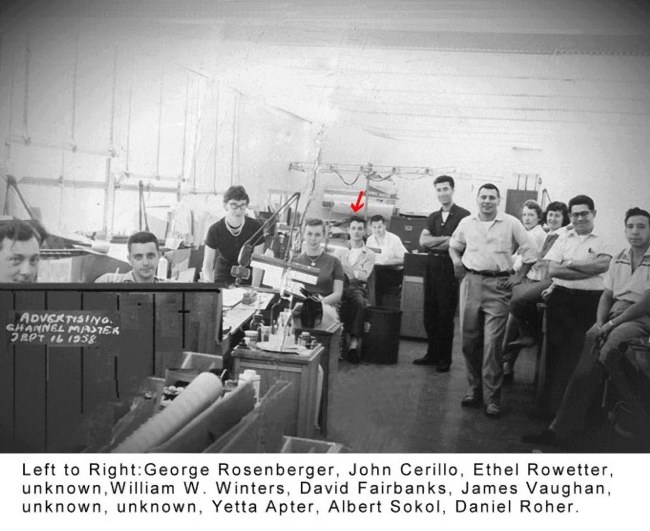
The beginning of my Commercial Art Days at the Channel Master Corp. Art Dept..-1953-69
Below: The Five Year Employees list from the Swing Lock Lines newpaper
published for the employees of the Channel Master Corp. 1959 issue
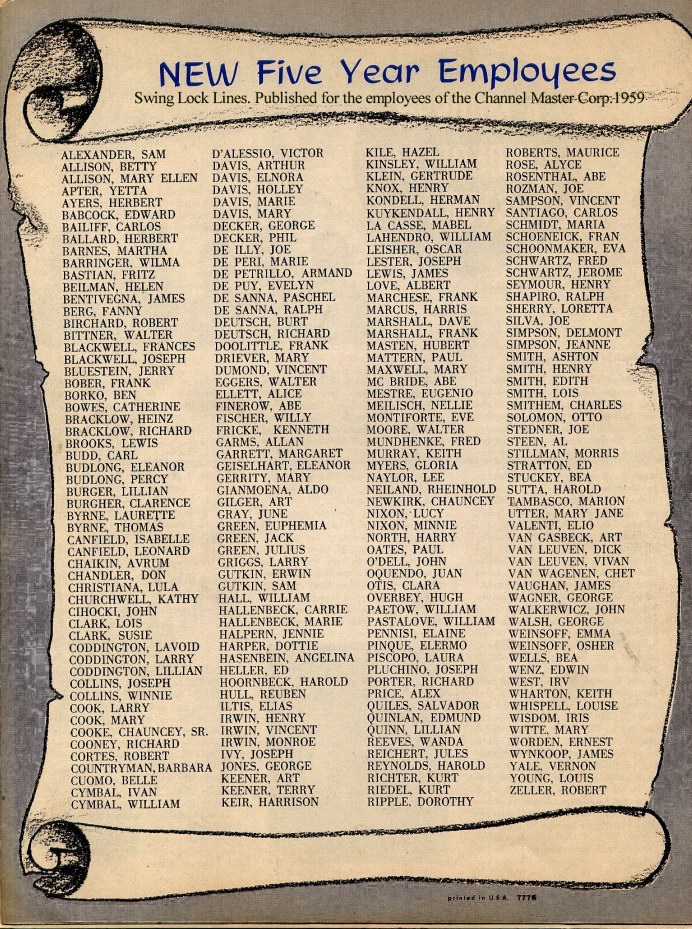
Below: Cover of the 1959 issue of the Channel Master Corp Swing Lock Lines
employees newspaper. 1959 issue
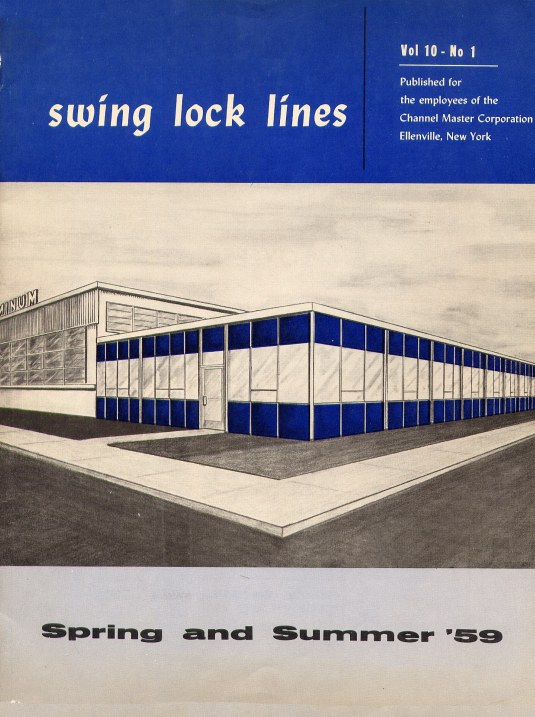
Back to Home page
